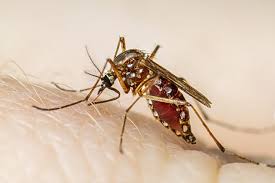
As the monsoon advancesand moisture becomes the ideal condition for mosquitoes to breed, dengueoutbreaks are overwhelming cities in Karnataka, Kerala and Maharashtra. But wecan manage this disease if we are vigilant.
Dengue fever presentsitself with a sudden onset of fever, severe headache, pain behind the eyes,muscle and joint pains, nausea, vomitting, swollen glands and a rash. Theseusually appear 4-10 days after the mosquito bite and can last for 2-10 days.Early diagnosis is necessary because it can quickly transform into severedengue, also known as dengue hemorrhagic fever or dengue shock syndrome, whenthe number of clot-forming cells (platelets) in your bloodstream drops and yourblood vessels are damaged enough to be leaky. This can lead to shock, internalbleeding and organ failure.
WHEN TO TEST FOR DENGUE?
If you have the symptomslisted above, go for the dengue NS1 antigen test, which measures thenon-structural protein of the virus, or PCR tests. Then take the IgM antibodytest on the fourth or fifth day when you are most likely to pick it up. Get acomplete blood count (CBC) done and if diagnosed, repeat it on alternate daysto check for platelet levels. One of the most important markers is the PCV(packed cell volume), which is a measure of blood viscosity. This indicates anincrease in red blood cells or dehydration.
WHY HYDRATION ISIMPORTANT?
Usually, the patient feelsbetter after the fever subsides in four to five days. And if the patient hasnot kept themselves well-hydrated to compensate for fluid loss due to fever andvomitting, complications could arise after Day 4. Have between three to fivelitres of water or oral rehydration solutions, coconut water and clear soups.Severe dengue can lead to plasma leakage and intravenous (IV) fluid therapy maybe required in a hospital setting.
HOW TO PREVENT SEVEREDENGUE
Regular blood tests tomonitor platelet levels and importantly hematocrit levels can managecomplications. Hematocrit level is simply the percentage of red cells in yourblood. In dengue, an increased hematocrit is a clue for plasma leakage, whereasa decreased hematocrit is a clue for bleeding. If platelet levels dropsignificantly, medical intervention may be necessary.
The hematocrit levelshould be monitored every 24 hours to facilitate early recognition of denguehemorrhagic fever and every 3-4 hours in severe cases of dengue hemorrhagicfever.
Pain relievers and feverreducers like paracetamol can help manage the symptoms. Avoid non-steroidalanti-inflammatory drugs (NSAIDs) like aspirin and ibuprofen, as they canincrease the risk of bleeding, which is a serious complication of dengue.
Do not exert yourself whenyou feel better, rest is important to not aggravating this condition.
IS THERE A VACCINE?
In some regions, a denguevaccine (Dengvaxia) is available and recommended for individuals who have beeninfected previously. In India, trials are ongoing but finding one vaccine totackle four prevalent virus strains is a challenge.
=======